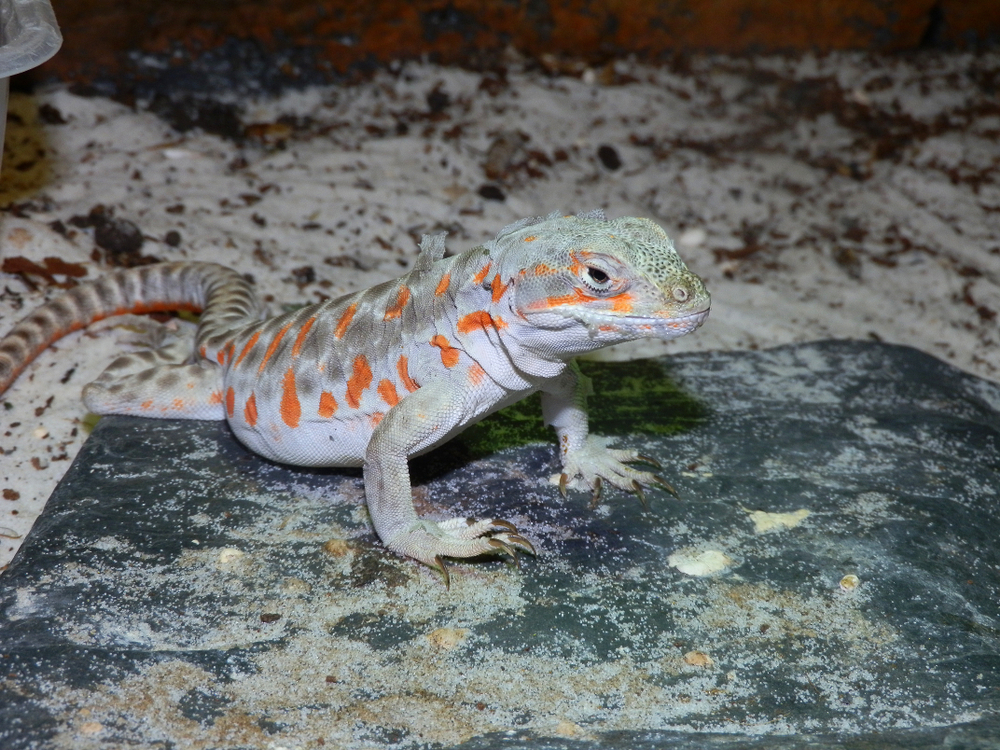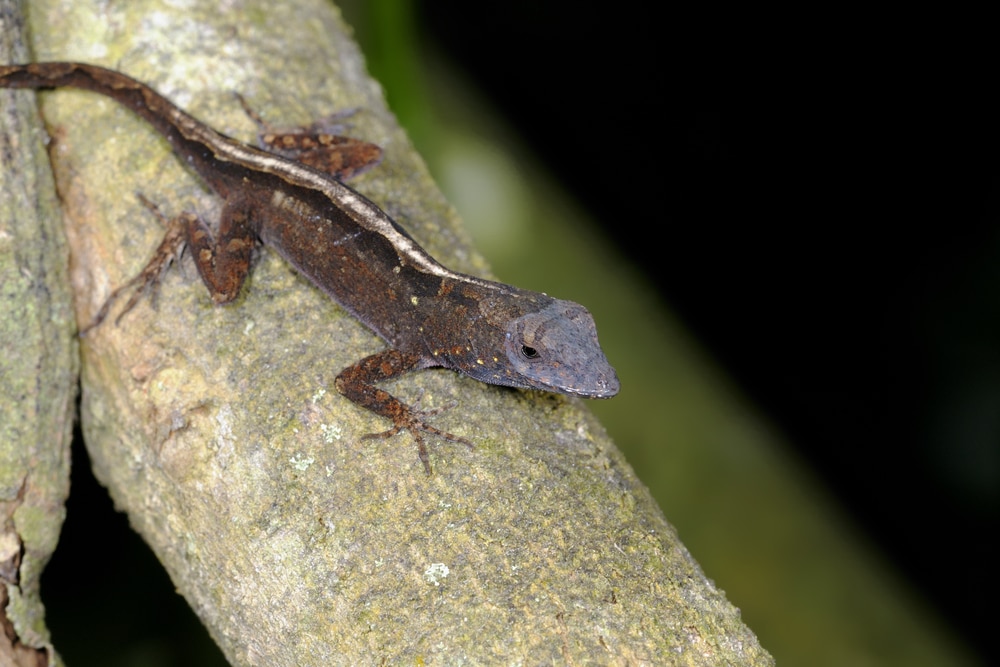Your new lizard requires specific items for good care.
I have a lizard. I went to a pet store and fell in love with a leopard lizard – or something like that. I wanted him bad, but I did not have the money to buy him because I was saving for an electric guitar. So that very day I went searching in my yard for hours at a time and found one! I just don't know what kind he is. His name is Bruno. He can turn two colors: green and brown. I found him in a dark and moist place. His stomach is white. I live in a house with woods all around it and a lot of bushes. He has a very long tail. He loves to climb.

shutterstock/vlADIMIRA PUFFLEROVA
Long nose leopard lizard
Well, isn’t it amazing how the universe can answer a request from us from time to time? You got what you wanted, and you still have money for your guitar. That’s the good news!
Now for the bad news. You will need to dip into your savings if you want to properly care for your free lizard. From your description, you found a green anole (Anolis carolinensis). You will need to provide your new charge with a cage and conditions that will mimic his natural environment. You didn’t say where you live, but these lizards are found from the Carolinas, all the way south to Florida, as far as eastern Texas and north to Oklahoma. They are also found in the Bahamas, Cuba and Mexico. I assume you live in the southeastern United States, where green anoles are found.
Bruno will need a habitat that provides him with the appropriate temperature range (75 to 80 degrees Fahrenheit with a basking spot of 85 to 90 degrees). This temperature can drop to 65 to 75 degrees at night. This means you will need to provide a basking light, a method to heat his enclosure (heat strips under his tank are a good choice), a full-spectrum light providing ultraviolet light (especially UVB, which is necessary for proper utilization of calcium) and a varied diet of live bugs for him to eat daily. Anoles will eat almost anything alive and moving that is of appropriate size. You will also need to purchase a gut-load for the crickets and a vitamin/mineral powder to dust onto the insects for added nutrition.
It is better to offer a varied diet than to end up with him deciding he likes one type of insect over all others. Variety is key, so catching moths and other small insects from around your yard will help to supplement purchasing crickets, mealworms and waxworms for your new pet.
You would need the same sort of setup if you purchased a leopard gecko from the pet store, so when dealing with a new pet, it’s not just the cost of the pet, but also the cost for all of the supplies for him.
Now, you have a very important choice to make. Will you spend some of your hard-earned money to purchase all of the equipment necessary for you to properly house your new pet lizard? If you don’t think you can, then I recommend you turn your lizard loose before he becomes weakened from being housed indoors at room temperature and with no ultraviolet lighting.
At this point, we haven’t even discussed veterinary care. Because your anole was wild-caught, you should have his droppings tested for the presence of parasites, at minimum. This should be performed by a herp veterinarian. Should your anole become ill, you would also require the assistance of a herp veterinarian, which costs money. So, you must understand that owning any kind of pet requires a financial commitment.
Please discuss this with your parents, and let them read this answer. Perhaps they will help you purchase the proper setup for your new lizard. Either way, they need to know you now have new responsibilities in caring for your pet.
Need a Herp Vet?
If you are looking for a herp-knowledgeable veterinarian in your area, a good place to start is by checking the list of members on the Association of Reptilian and Amphibian Veterinarian (ARAV) web site at www.arav.com. Look for DVMs who appear to maintain actual veterinary offices that you could contact.


